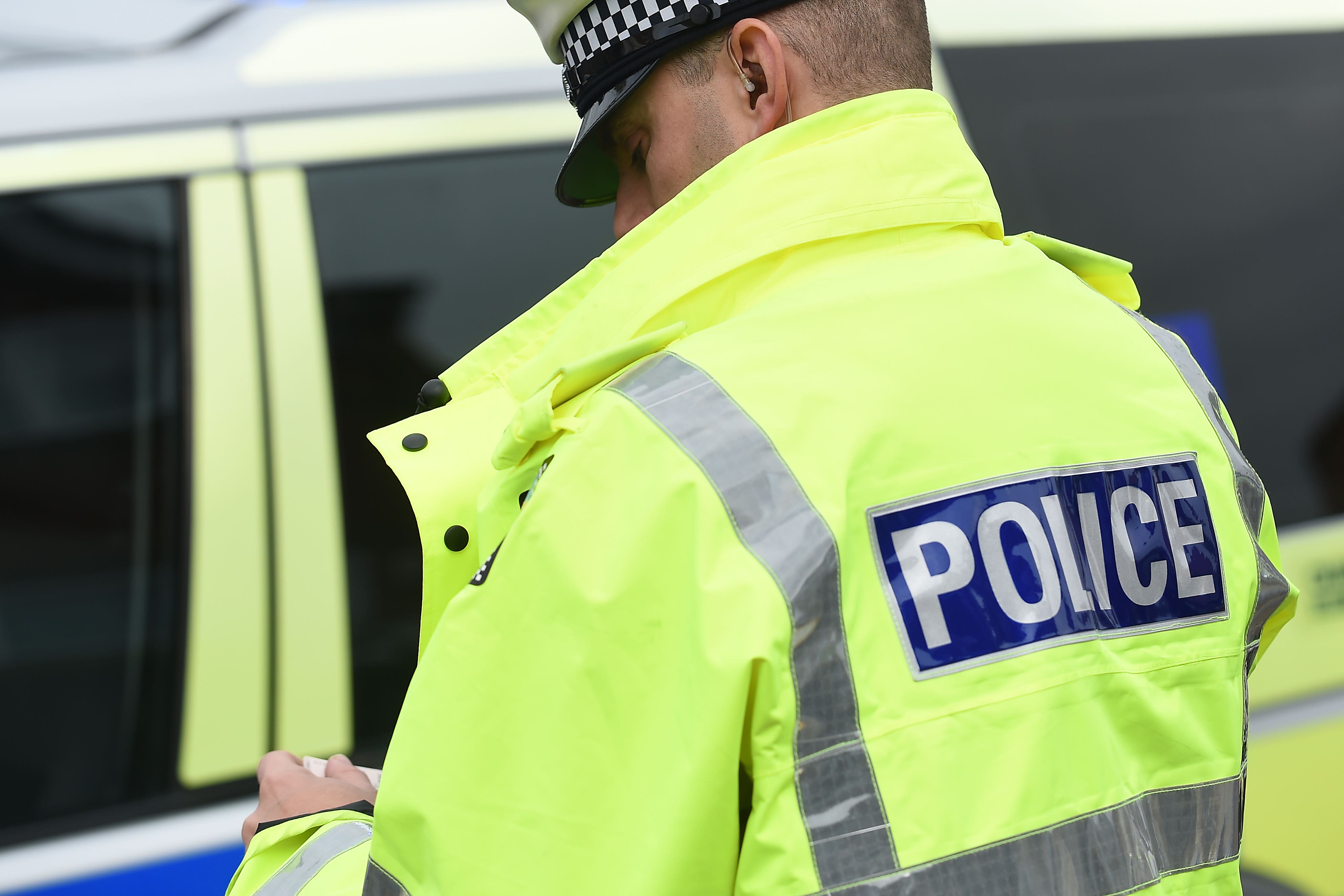5% of police strip-searches carried out on children, new figures show
The release follows the Child Q scandal earlier this year, in which a 15-year-old schoolgirl was strip-searched by police

More than 3,000 children were strip-searched by police in a year, and more than a third were black, figures show.
There were 65,336 strip-searches carried out by 28 of 43 forces in England and Wales in the year to March, of which 5% (3,133) were carried out on 10 to 17-year-olds, according to data published for the first time on Thursday.
The “most notable differences” between adult and child strip-searches were that “higher proportions” of children were black or from a black British background (35%), compared with adults (19%), the Home Office report said.
“Less than half (43%) of all children strip-searched were of a white ethnic background, compared with 65% of adults strip-searched,” it added.
Some 9% of the strip-searches carried out on the age group took place in custody.
Campaigners described the figures as “appalling” and “disturbing” and called on government and police leaders to overhaul guidelines and investigate why so many children are being strip-searched.
Data was not provided by Avon and Somerset, Dorset, Durham, Greater Manchester, Lancashire, Leicestershire, Lincolnshire, North Wales, Northamptonshire, South Yorkshire, Staffordshire, Surrey, Sussex, Thames Valley or Warwickshire forces.
The release follows the Child Q scandal earlier this year, in which a 15-year-old schoolgirl was strip-searched by police while on her period, after being wrongly suspected of carrying cannabis at school.
The search, by female Metropolitan Police officers, took place in 2020 without another adult present and in the knowledge that she was menstruating, a safeguarding report found.
A review conducted by City & Hackney Safeguarding Children Partnership (CHSCP) concluded the strip-search should never have happened, was unjustified, and racism “was likely to have been an influencing factor”.
Four Metropolitan Police officers are being investigated for gross misconduct by the Independent Office for Police Conduct (IOPC) in connection with the incident.
The scale of this horribly intrusive practice, and the disproportionate numbers of black children being searched, is extremely concerning
Scotland Yard has apologised and said it “should never have happened”.
The law firm Bhatt Murphy said in March that the teenager was taking civil action against the Met and her school to obtain “cast-iron commitments to ensure this never happens again to any other child”.
Since then, the IOPC confirmed it is investigating four further strip-searches of children between early 2020 and 2022. Three other cases considered by the watchdog were sent back to the force in question to be investigated.
Figures later obtained from Scotland Yard by the Children’s Commissioner showed 650 children underwent “intrusive and traumatising” strip-searches under stop and search powers by the Met between 2018 and 2020, with black boys disproportionately targeted.
Children’s Commissioner Dame Rachel de Souza said she was “deeply concerned that police aren’t fully considering the safeguarding and welfare of vulnerable children”.
She welcomed more scrutiny and transparency of strip-searches involving children but said: “More action is needed … I will not be satisfied until national guidelines are changed to ensure that children are strip-searched only in the most exceptional situations and there are robust safeguards in place.”
The Government should end the power of the police to strip-search children and, in any rare instances where the strip-search of a child is essential, police forces must obey their own rules and ensure an appropriate adult is always present
Iryna Pona, policy manager at The Children’s Society, said: “The scale of this horribly intrusive practice, and the disproportionate numbers of black children being searched, is extremely concerning.
“We urge the Home Office and police leaders to investigate why so many children are being strip-searched and review guidance and training for officers so that vulnerable young people are protected.”
Amnesty International UK described the figures as “profoundly disturbing”, adding that the use of strip-searches poses a “serious violation of children’s dignity and human rights”, while the NSPCC said it was “clear that adultification of children and racism are affecting police searches of children, not just in London but across the country”.
The Runnymede Trust’s head of research Dr Shabna Begum said the data was “appalling” and “underlines just how badly our ethnic minority children are being failed by the institutions there to protect them”.
“The Government should end the power of the police to strip-search children and, in any rare instances where the strip-search of a child is essential, police forces must obey their own rules and ensure an appropriate adult is always present.”
It is vital that any police interaction is handled sensitively, and that when an officer considers it necessary to search a child that it is carried out in line with policy
A National Police Chiefs’ Council spokeswoman said: “Police have an important role in ensuring the safety of young and vulnerable people.
“It is vital that any police interaction is handled sensitively, and that when an officer considers it necessary to search a child that it is carried out in line with policy.
“In rare circumstances when a more thorough search is necessary, additional safeguards are in place.
“On all but exceptional occasions, such as an immediate risk of harm to the young person, this will involve the presence of an appropriate adult which is catered for under the codes of practice.”
A Home Office spokesperson said: “Strip search is one of the most intrusive powers available to the police but does also play an important role in their efforts to protect the public, including children.
“Any child strip-searched in custody should be accompanied by an appropriate adult unless they specifically request otherwise and the appropriate adult agrees.
“We take the concerns raised about children’s safeguarding extremely seriously. The Independent Office for Police Conduct is currently investigating several high-profile incidents of strip search of children and it is vital that we await their findings.”
Bookmark popover
Removed from bookmarks